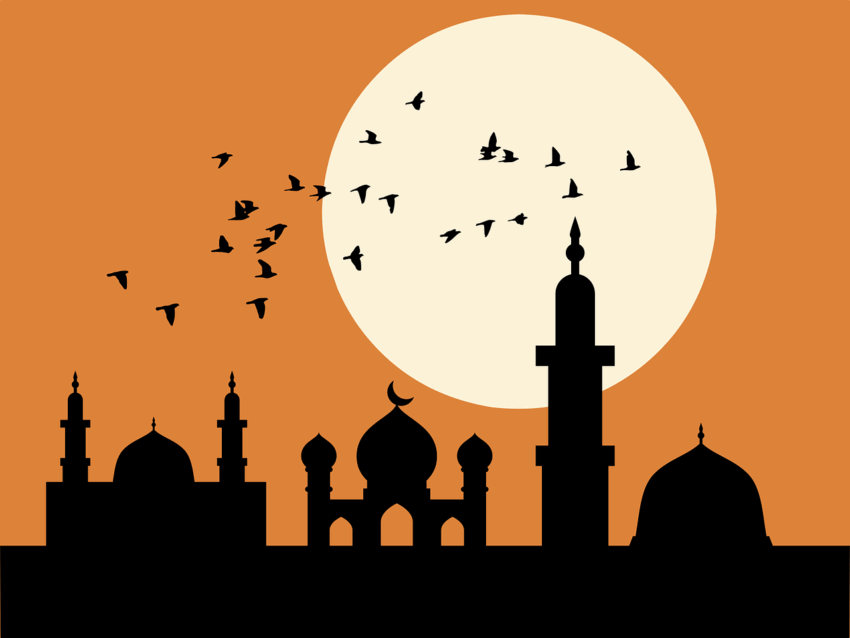Shab-e-Barat and Its Importance in Islam
Introduction
Shab-e-Barat, also known as the Night of Forgiveness or Laylat al-Bara’ah, is one of the most significant nights in the Islamic calendar. It falls on the 15th night of Sha’ban, the eighth month of the Islamic lunar calendar. Muslims around the world observe this night with prayers, seeking forgiveness, and acts of charity. The word Shab-e-Barat originates from Persian and Arabic, meaning the Night of Records, Deliverance, and Forgiveness.
Religious Significance
Islamic traditions and scholars emphasize the importance of Shab-e-Barat, associating it with divine mercy and decree. It is believed that on this night, Allah (SWT) decides the fate, sustenance, and lifespan of individuals for the coming year. While the Qur’an does not directly mention Shab-e-Barat, some scholars relate it to Surah Ad-Dukhan (44:3-4), which states:
“Indeed, We sent it [the Quran] down during a blessed night. Indeed, We were to warn [mankind]. On that night, every precise matter is made distinct.”
Many Islamic traditions and narrations from Prophet Muhammad (PBUH) indicate that Allah (SWT) forgives the sins of those who sincerely repent on this night. However, He does not forgive those who hold grudges, indulge in shirk (associating partners with Allah), or sever family ties.
How Muslims Observe Shab-e-Barat
1. Night Prayers and Worship
Muslims spend the night in deep prayer (Nafl), reciting the Quran, and seeking forgiveness (Istighfar). Many visit mosques for special congregational prayers, while others pray at home, dedicating time to personal supplication (Dua). The night is also considered a time to reflect on one’s deeds and seek guidance.
2. Seeking Forgiveness
One of the central aspects of Shab-e-Barat is asking Allah (SWT) for forgiveness. Muslims believe that this night offers an opportunity for a fresh start, cleansing their hearts from past sins. The Prophet Muhammad (PBUH) is reported to have said:
“On this night, Allah, the Almighty, descends to the lowest heaven and forgives a great number of people, except those who commit shirk, hold grudges, or break family ties.”
3. Visiting Graves and Remembering the Deceased
It is a common practice in some cultures for Muslims to visit the graves of loved ones on this night. They recite Fatiha and other prayers, seeking mercy for the departed souls. However, Islamic teachings emphasize that this should be done with sincerity and not as a mere ritual.
4. Fasting on the 15th of Sha’ban
Many Muslims observe a voluntary fast on the day following Shab-e-Barat (15th Sha’ban) as it is believed that fasting on this day brings blessings. Though it is not obligatory, fasting is encouraged based on the Prophet’s (PBUH) tradition of fasting frequently in Sha’ban.
5. Charity and Good Deeds
Shab-e-Barat is also a time when Muslims engage in acts of charity (Sadaqah), distribute food to the poor, and help those in need. These good deeds are believed to bring immense rewards and blessings.
Different Perspectives on Shab-e-Barat
While Shab-e-Barat is widely observed by Muslims across the world, there are varying perspectives on its significance. Some Islamic scholars consider it an important night of worship and forgiveness, while others argue that there is no direct Sahih Hadith (authentic narration) confirming its observance as a special night. However, many renowned scholars agree that spending any night in prayer and seeking forgiveness is beneficial in Islam.
Conclusion
Shab-e-Barat is a night of mercy, forgiveness, and reflection. It serves as a reminder to seek Allah’s (SWT) blessings, mend broken relationships, and prepare spiritually for Ramadan. Whether through prayer, charity, or fasting, observing this night sincerely can bring peace and spiritual fulfillment. As Muslims strive for a closer connection with Allah (SWT), Shab-e-Barat offers an opportunity to reflect, repent, and renew faith.

